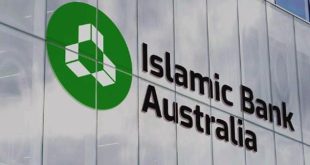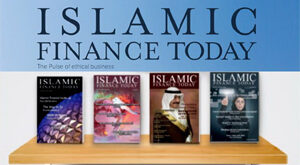Islamic finance is a way of doing financial transactions and banking while respecting Islamic law or sharia. Islamic finance hardly existed 30 years ago yet today is a $4 trillion industry with hundreds of financial institutions located in more than 80 countries. Islamic banks are by far the biggest players in the Islamic finance industry and account for $1.75 trillion or 70% of total assets. According to the State of Global Islamic Economy report, total Islamic finance assets are expected to grow to $4.9 trillion by 2025.
Islamic financing only represents about 1% of global financial assets but with a 17% growth rate in 2021, the sector is expanding faster than conventional banking. S&P Global Ratings expects Islamic finance to grow at an average of 10% in 2023-2024.
“The Gulf Cooperation Council countries—notably Saudi Arabia and Kuwait—largely fuel this performance, supported by a large, one-off acquisition in the latter” says S&P, referring to Kuwait Finance House’s acquisition of Ahli United Bank which created one of the largest Islamic banks in the world with $118 billion in assets, a presence in 12 countries and 17,000 employees. “Elsewhere, growth was either muted or held back by local currency depreciation.”
In some geographies like the Gulf Cooperation Council (GCC), Sub-Saharan Africa or South-East Asia, Islamic financial institutions now compete directly with conventional banks to attract Muslim clients.
So what is behind the success of Islamic finance? What makes Islamic finance special? Why is it growing rapidly?
Islamic Law and Islamic Financial Services
The most famous rule in Islamic finance is the ban on usury. In economic terms, this means lender and borrowers are forbidden from making interest payments or riba. Sharia-compliant banks don’t issue interest-based loans.
The obvious question then becomes: how do Islamic banks make money? Instead of lending money to their clients at a profit, they buy the underlying product—the house, the car, the refrigerator—and then lease it or re-sell it on installment to the client for a fixed price typically higher than the initial market value. The key notion here is risk sharing—the banks make a profit on the transaction as a reward for the risk they took with the customer. Instead of thriving off of interest rates like conventional banks, Islamic banks use their customers’ money to acquire assets such as property or businesses and profit when the loan is successfully repaid.
All Islamic finance products, acquisitions, and transactions must reflect Islamic principles. Dealing with anything illicit (haram) like alcohol production, pork breeding, arms manufacturing, or gambling is strictly forbidden. It is interesting to note that similar initiatives exist in other faiths—the STOXX Index for example only selects companies that respect Christian values.
Avoiding Interest Pays Off
This ethically-driven approach to business partly explains the success of Islamic banks at a time when many customers lack trust in the financial system. Moreover, entities operating in a sharia-compliant manner have proven themselves in times of crisis.
Because Islamic law holds that making money from money is wrong, sharia-compliant institutions tend to refrain from engaging in speculation. They traditionally avoid derivative instruments such as futures or options and prefer to have assets grounded in the real economy.

This substantially protected Islamic banks from the 2008 global financial crisis. Sharia compliance ensured that Islamic banks were not involved with toxic assets and resisted the shock better than the average commercial bank.
“Adherence to Shariah principles—which precluded Islamic banks from financing or investing in the kind of instruments that have adversely affected their conventional competitors—helped contain the impact of the crisis on Islamic banks” concluded a 2010 IMF report.
This is a major reason why Islamic finance now has a serious, stable and trustworthy image around the world.
During the COVID-19 crisis, Sharia-compliant institutions were hit hard but rebounded quickly in 2021-2022 thanks to strong growth in oil-producing countries that benefitted from higher energy prices.
Post Disclaimer | Support Us
Support Us
The sailanmuslim.com web site entirely supported by individual donors and well wishers. If you regularly visit this site and wish to show your appreciation, or if you wish to see further development of sailanmuslim.com, please donate us
IMPORTANT : All content hosted on sailanmuslim.com is solely for non-commercial purposes and with the permission of original copyright holders. Any other use of the hosted content, such as for financial gain, requires express approval from the copyright owners.
 Sri lanka Muslims Web Portal Diversity and Inclusiveness
Sri lanka Muslims Web Portal Diversity and Inclusiveness



